Earth’s climate is changing. Always has, always will; so that statement would’ve been true a thousand years ago, and will be so a thousand years hence. However, evidence is accumulating that climate is now changing faster and more radically than ever before in human history, faster than ever before in the recent geologic past, and in some respects faster than in Earth history, period.
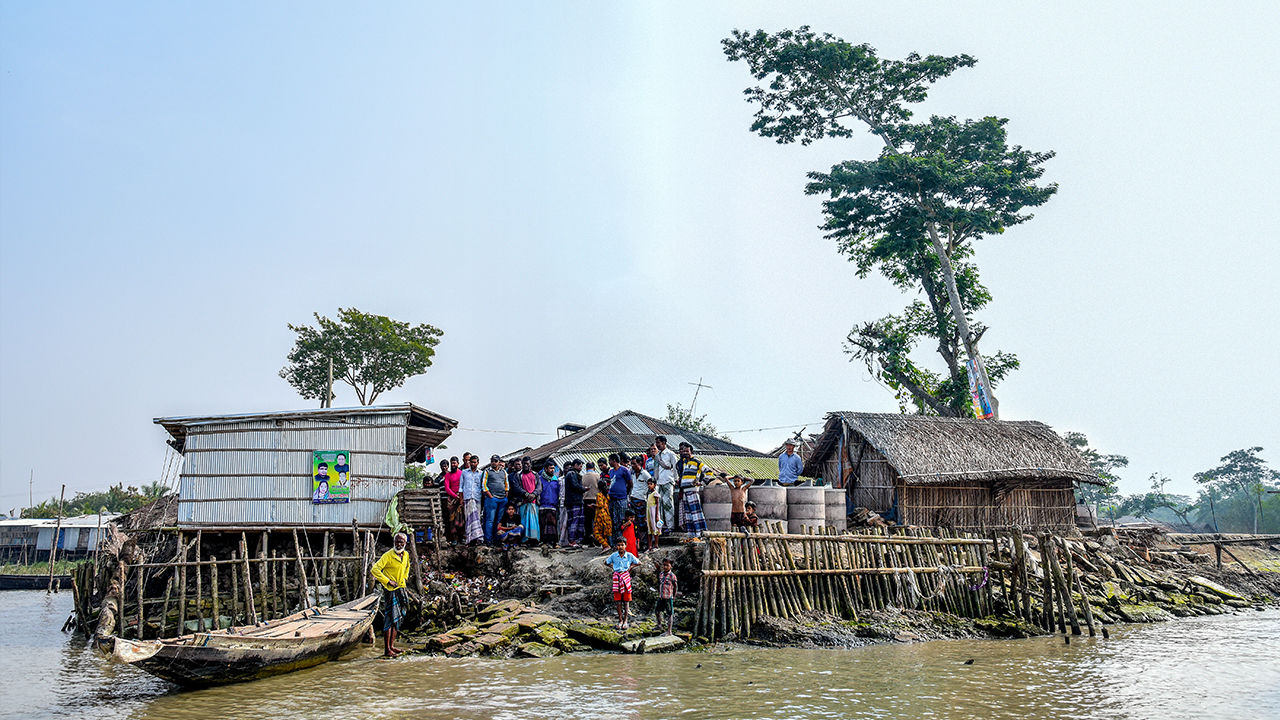
Villagers cluster on Polder 32, an artificial island in southwest Bangladesh with an uncertain future (Tanmoy Bhaduri, Sciencemag.org)
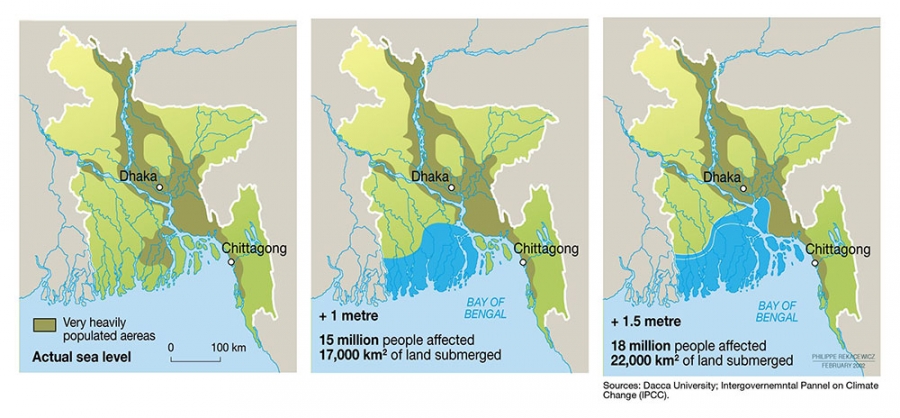
In addition to sea-level rise, global warming puts Bangladesh at greater risk for stronger and more frequence tropical cyclones.
Whether one views humans as stewards, masters, or neutral actors in nature, we are accustomed and adapted—ecologically, economically, socially, and culturally—to environmental conditions which have characterized the periods in which our ecosystems, economies, societies, and cultures have developed. Changes in those environmental conditions—which are recursive in the sense that humans change the environment while environment constrains and influences humans—thus have implications well beyond the realm of climate and environmental science.
Naturally, we want clear answers about the impacts of climate change. We want unambiguous forecasts, accurate predictions, and clear indications on what to do.
Alas, we will not get them.
We will often be wrong, and even the right answers will be often incomplete.
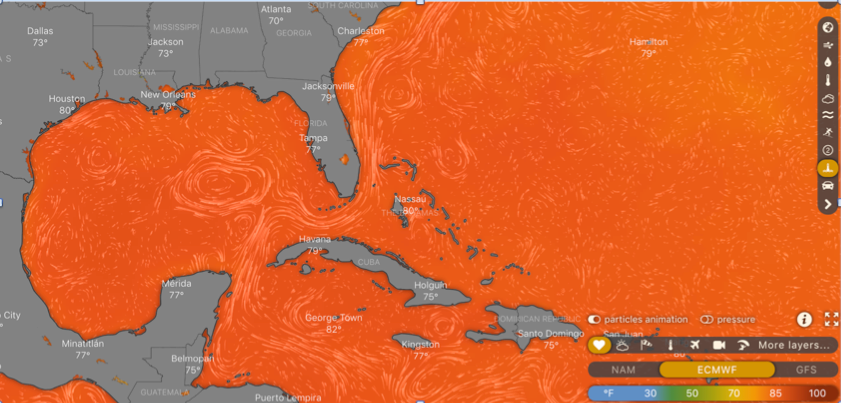
Sea surface temperatures, mid-September 2020 (from Windy.com). The entire area shown has temperatures high enough to facilitate the development and strengthening of tropical cyclones, which is exactly what happened.
Certain to be uncertain
Climate change will have profound impacts on plants, animals, ecosystems, rivers, lakes, glaciers, ground water supplies, and biogeochemical cycles. Climate change will have significant effects on soil erosion, landslides, avalanches, wetlands, rock weathering, and coastal erosion. Climate change will severely influence agriculture, forestry, energy, transportation, and trade. The problem is that while the occurrence of such impacts is a virtual certainty, their specific nature and manifestation, timing, geography, and severity is also certain to be highly variable—and highly uncertain. Even more, the interactions between and knock-on effects of climate change impacts are highly uncertain, sometimes offsetting or cancelling each other out, sometimes exacerbating or reinforcing each other, sometimes sending earth surface systems into entirely unexpected directions.

Mountain pine beetle larvae at work. Climate warming has allowed a major range expansion of these wood-eaters in North America, as well as the spruce bark beetle in Europe and other bark beetles (source: animalspot.net).
The fact is—and I would say the same whether you are a complete amateur in the field or a world-class geoscientist—that you don’t know exactly what is going to happen, and neither do I. But complexity, no matter how severe—does not mean intractability. Some of the principles of complexity, nonlinear dynamics, and contingency that I have (and continue to) emphasize over the years have been interpreted as implying that (some) Earth surface systems are unpredictable. This is not so. What these principles indicate is not unpredictability, but a new context for prediction.
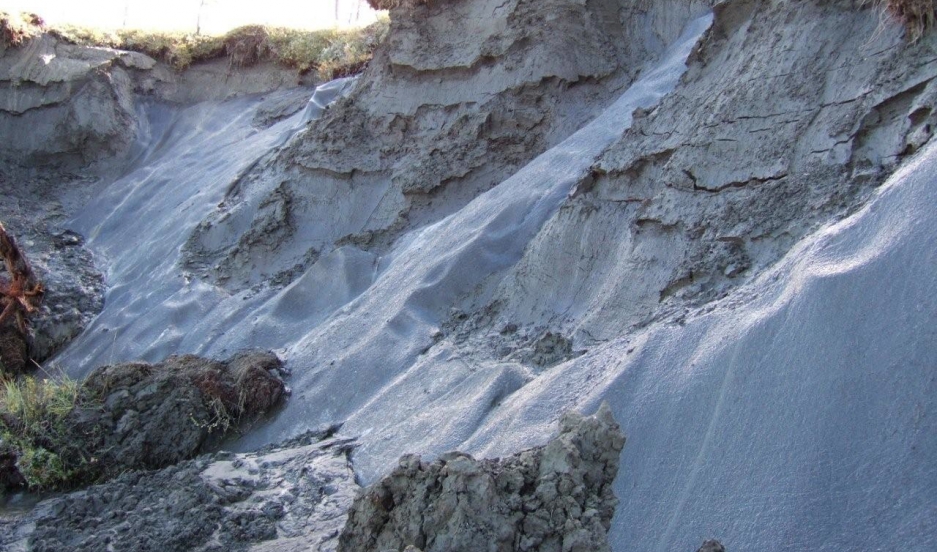
Yedoma is a type of permafrost that is rich in carbon, releasing large quantities of greenhouse gases if it thaws. This yedoma exposure is on the Lower Koluma River in Northern Yakutia, Russia. (Credit: Nicolay Shiklomanov/National Snow and Ice Data Center)
I have often stressed uncertainties and multiple possibilities, but be clear: Uncertainty is no excuse for inaction. When the house is afire, you may be unable to estimate the rate of heat release, the flammability and consumption rate of various materials in the house (which will also vary with their age and ambient environment), the probabilities of fire propagation in various directions, or the fluid dynamics of air flow in the vicinity, which will of course change as the fire proceeds. You do know, however, how to put the fire out, and that you damn well better call the fire department or grab a hose or bucket or extinguisher. You also know that it would be idiotic and disastrous to calculate or debate the cheapest possible way to contain the fire, and the minimum amount of water required to quench it. The house is on fire, and it is past time to grab a bucket.
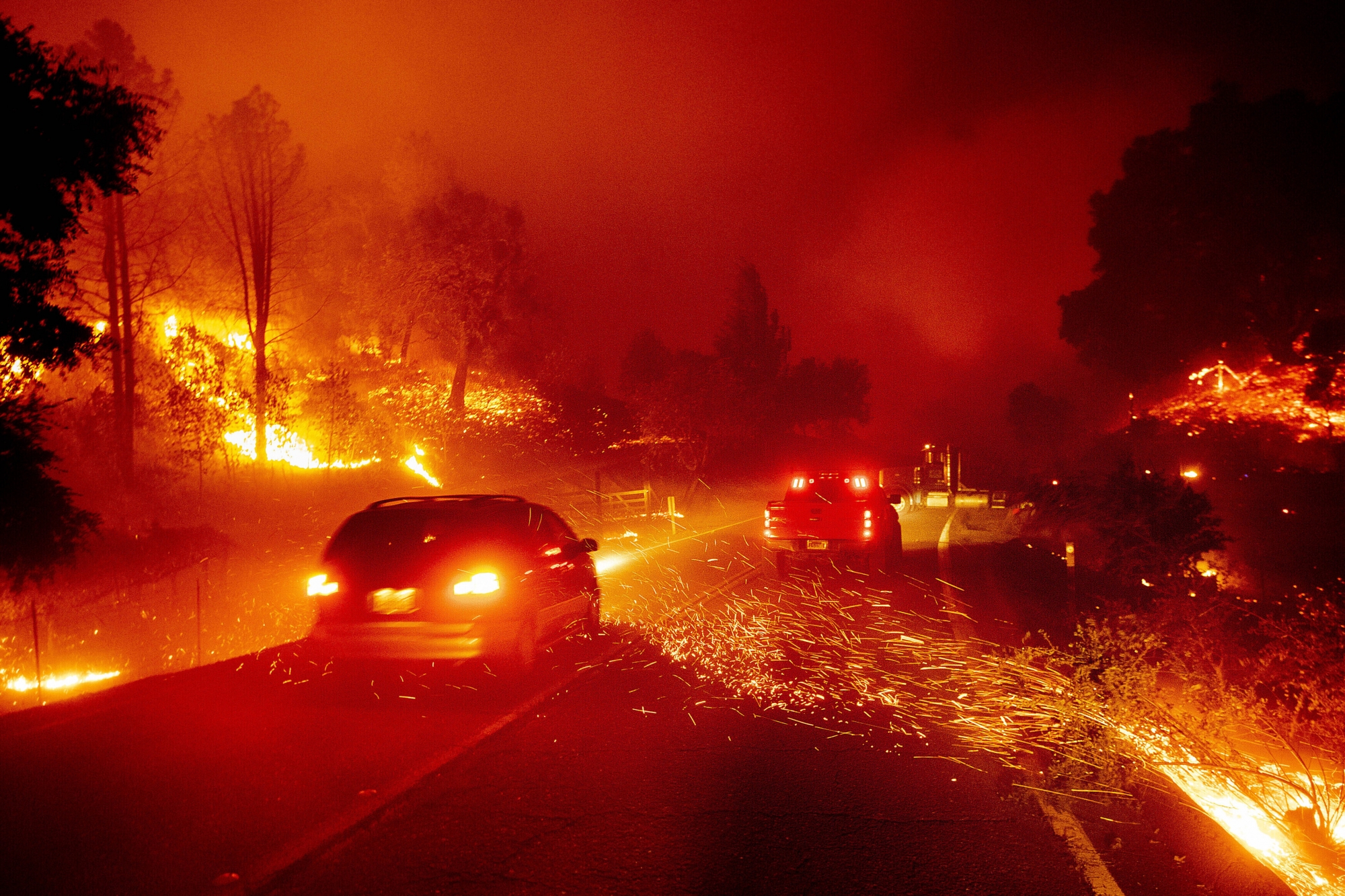
California wildfire (source: WTOP.com)
Understanding, assessing, and predicting impacts of climate change is not at all like programming a computer, where a specific set of instructions produces a specific output (though even in this case deterministic chaos is possible!).* It is much more like sailing a boat, where a good sailor will make frequent adjustments to the wind and waters, based partly on ironclad universally applicable scientific principles, partly on general principles and practices, and partly on instinct and intuition based on training and experience.
The broader question, of course, is what we want to program the computer to do, or where we want to sail the boat. Unfortunately, we cannot now—and may never be able to—plot a precise course (or produce a specific algorithm). We can, however, identify some signposts and landmarks and rules of thumb for pathfinding—some stars to steer by. The kind of research I advocate and practice is not intended to make specific predictions or forecasts, but to identify some alternative paths. Not to devise global laws, but to present general lessons.
------------------------------------------------------------------
*This analogy is not intended to criticize the use of computer models in climate change impact research!
18 November 2020
